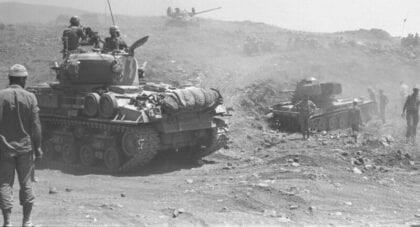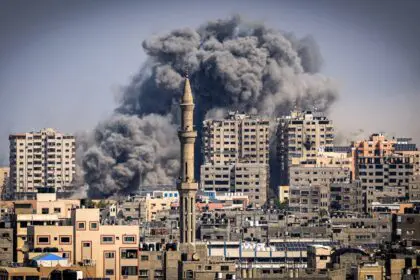Barack Obama, Bush's successor as US president, was inaugurated in January 2009. Obama considers it one of his priorities to restore the damage done to the position of the United States in the Middle East during the Bush presidency.

Barack Obama, Bush’s successor as US president, was inaugurated in January 2009. Obama considers it one of his priorities to restore the damage done to the position of the United States in the Middle East during the Bush presidency. One of the cornerstones of his Middle East policy is to try to arrange an agreement between Israel and the PLO/PNA. Hamas, which had proposed a hudna (Arabic for ceasefire) with Israel (Hamas Proposal), will be left out such an agreement, as the movement is considered a terrorist organization by the American government: a view shared by the European Union.
Obama appointed George Mitchell as his special envoy for the Middle East. In order to improve the chances for American diplomacy, the president put pressure on Israel to freeze all settlement activity (one of the recommendations of the 2001 Mitchell Report). However, at first, the overwhelmingly right-wing government of Israeli Prime Minister Benjamin Netanyahu refused to back down on the settlements. However, later, in November 2009, Netanyahu announced a ten-month settlement freeze on the West Bank (East Jerusalem excluded), although housing projects already under construction could go ahead.
In March 2010, the mayor of Jerusalem, Nir Barkat, caused a huge diplomatic scandal during a visit by the American Vice-President Joe Biden to Israel, by announcing that the building of 1600 housing units planned in the East Jerusalem neighbourhood of Ramat Shlomo would get the green light.
Nevertheless, in May 2010, Mitchell succeeded in starting up so-called ‘proximity talks’, cautiously endorsed by the Arab League. As before, no progress was made. After the Israeli government refused to extend the settlement freeze (which expired on 27 September), the talks came to a complete standstill. President Obama did not put subsequent pressure on Israel following its refusal to extend the settlement freeze.
History of the Palestinian-Israeli Conflict
This article is part of our coverage of the history of the Palestinian-Israeli Conflict.
Fanack’s historical record meticulously chronicles the Palestinian-Israeli Conflict in a chronological sequence, encompassing its origins, crises, wars, peace negotiations, and beyond. It is our most exhaustive historical archive.



